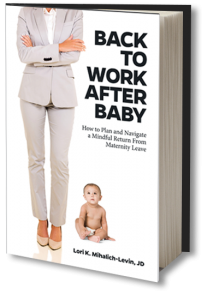 Nearly three weeks ago, Covid finally got me, and I was forced to adopt a slower work and life pace. I was the last one standing in our family of four. My husband and one of our sons already had it once. My other son already had it twice. And despite my ridiculously close proximity to all of their germs, snot, and fevers, I hadn’t managed to catch it. Until now.
Nearly three weeks ago, Covid finally got me, and I was forced to adopt a slower work and life pace. I was the last one standing in our family of four. My husband and one of our sons already had it once. My other son already had it twice. And despite my ridiculously close proximity to all of their germs, snot, and fevers, I hadn’t managed to catch it. Until now.
“Maybe I’m one of those people who’s simply immune to this thing,” I mused with less humility than I aught to have had. “Perhaps my trifecta of J&J, Moderna, and Pfizer vaccines (yes, I’ve had all 3) is a magic combination.” Nope. It turns out the universe needed me to remember that I was just as vulnerable to this illness, just as human, as everyone else.
When Covid hit me, it walloped. Completely fine during the day, a scratchy throat by evening, and a wild fever by midnight, it was a storm that seemed to come out of nowhere. And it struck while I was on work travel, nonetheless.
You know all those people who test positive and don’t even know they have Covid? That was the opposite of my experience. My body very suddenly felt just as it tends to feel the day after I get a Covid vaccine. Achy in weird places (like the middle knuckle of my right pinky finger), and fevers that leave my sheets flooded. I knew what this thing was, even before I tested.
Our Society’s “Acceptable” Length of Time to Go Slower
At the beginning of this Covid experience, I was doing a pretty good job of being kind to myself. I napped when I needed to. Worked when I could. And gave up on all but the most basic of tasks. “Sure, it’s ‘normal’ to be sick that first week,” I told myself. Everything can wait a few days.
When the days turned into weeks, though, my internal narrative began to change. Not only was I growing impatient with my own limitations and slower pace, but I was watching the toll my own lethargy was taking on my family, too. Yes, I was feeling better than that first week. No more fever, and fewer naps. But the fatigue and congestion have lingered.
Our society seems to teach us some unwritten rule about how long it’s okay to go slower. How long it’s okay to rest. There’s an assumed rule about how long a vacation is “acceptable”. (In the US, that’s one week, unless it’s your honeymoon.) How long it’s okay to recover from illness. (Perhaps also a week?) And even how long it’s okay to grieve the loss of a loved one. But where does the “I should be over this by now!” timeline come from? Hustle culture, capitalism, and from our own families of origin, I suspect.
Growing up, I was encouraged to push through fatigue and pain. I have memories of being told to “quit your hacking,” when my mother believed my cough had gone on too long to be “real” anymore. The narratives we get taught by our families and society about rest and recovery are hard to shake.
Healing, in Body and Brain
I’m now almost 3 weeks past Day #1 of this illness, and while I may not have contagious Covid anymore, I still have its lingering effects. A few nights ago, I tried to sleep my “normal” 7 hours, and my body firmly rejected that plan. Turns out I still need a solid 9-10 hours of nighttime sleep to be able to function and stay awake all day. My nose is still congested. I still have coughing fits. And I don’t sound fully like myself just yet. The “if I ignore this thing, maybe it will just go away” strategy hasn’t worked.
So I am now trying the route of surrender. I’m working to counter my brain’s mean “get over it” messages with Sarah Blondin’s much more compassionate reminders to allow myself “the gift of rest.” I’m binging on Tricia Hersey’s messages from The Nap Ministry, reminding me that rest is resistance. (I just pre-ordered her Rest Deck.) And I’m trying not to put a timeline on going slower and getting well.
This is hard for me, friends. Hard, hard hard. The “always on” mom, CEO, and lawyer in my brain is fighting me daily. But I’m newly committed to a daily (hourly, if need be) practice of surrender. Slower is how I need to live right now. So slower, it shall be.
Want more practical tips on working parenthood? Check out my book, Back to Work After Baby: How to Plan and Navigate a Mindful Return from Maternity Leave



